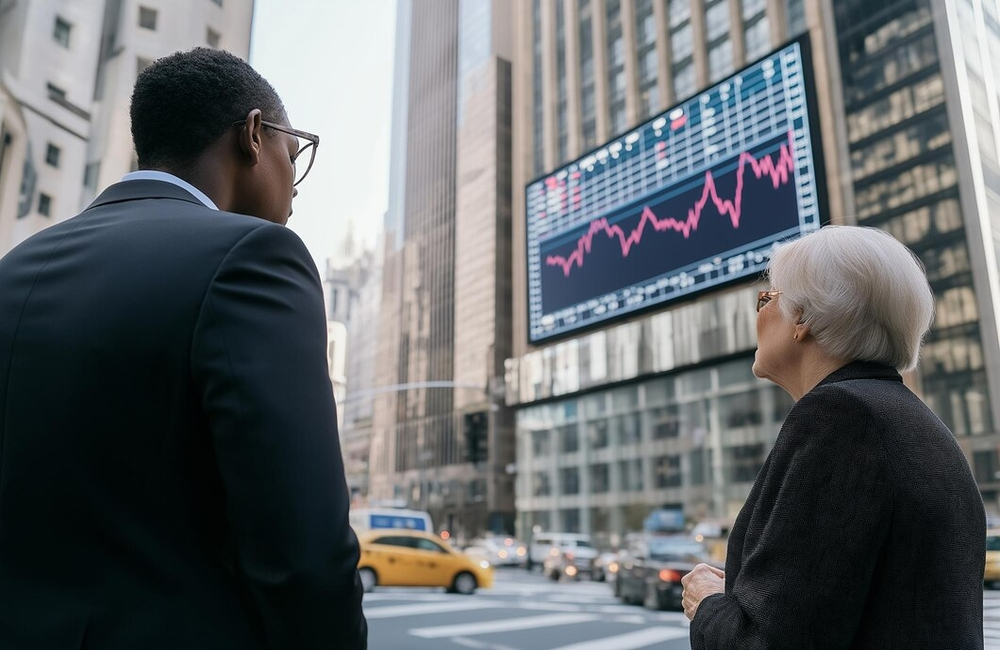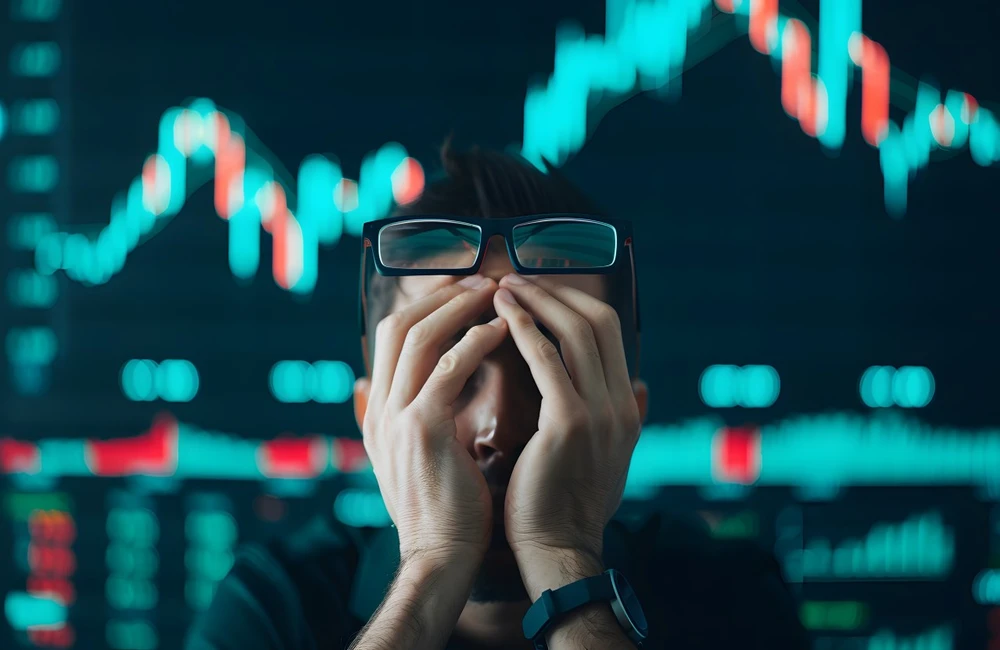Iron ore settled just shy of US$160. ASX futures were 19 points or 0.25 per cent higher at 7488 as of last trade on Saturday, pointing to a solid start to the day.
The Dow Jones Industrial Average gained 0.4 percent, the S&P 500 rose 0.3 percent and the Nasdaq Composite added 0.3 percent. All three indexes opened higher, dipped into midday trading as yields on government bonds rose, then advanced again to close the day in the green. US markets absorbed mixed messages about the economic outlook on Friday. The red-hot labour market kept tightening with employers adding 431,000 jobs in March, the 11th consecutive monthly gain above 400,000, the longest such streak of increases in records going back to 1939. The unemployment rate dropped to 3.6 percent from 3.8 percent, closing in on the pre pandemic rate of 3.5 percent in February 2020, a 50-year low.
A crucial segment of the US yield curve inverted in reaction, as traders placed a tighter labour market into the inflationary balance and pricing that the US Federal Reserve may have to hasten rate hikes, risking a recession. Yields on 2-year US Treasuries exceeded 10-year US Treasury for the first time since 2019. Yield curve inversions have preceded recessions historically.
“I think the labour market is very strong. Why is this data not being celebrated? It’s just that it blows inflation everyone,” said Michael Antonelli, managing director and market strategist at Baird. Clients with whom he speaks are simply taking a pause, he added, after spending much of the first quarter reallocating their investments in a wildly swinging stock market.
The S&P/ASX 200 finished less than 0.1% lower at 7493.8 locally on Friday, with strength among commodity stocks largely offsetting weakness elsewhere. The gauge was up 1.2% for the week, marking the end of a third consecutive weekly advance.
Rio Tinto, BHP and Fortescue, iron-ore miners, rose between 1.0% and 1.9% as the materials sector built on a 12% advance through the first quarter in 2022.
Energy producers Woodside and Santos climbed 1.8% and 2.1%, respectively.
Commonwealth Bank, Westpac and ANZ all lost between 1.2% and 1.5% on worries about inflation abroad and diminishing signs of an Australian house-price boom. In the commodity markets, iron ore was up 1% at US$159.85 a tonne, gold futures were down 1.6% at $1923.70 and Brent Crude was down 0.3% at US$104.39.
In bond markets, US 10-year Treasury Note yield climbed to 2.38% and US 2-year Treasury Note to 2.46%. The yield on the Australian 10-year bond rose to 2.82%. Yields rise when prices fall.
The Australian dollar was last buying 74.99 US cents on Saturday, compared to 74.83 before. The WSJ Dollar Index, which tracks the U.S. dollar against 16 other currencies, rose again to 91.42.
Asia
Chinese shares also ended in positive territory, boosted by an advance in auto and bank shares that followed easing worries over the country’s recent surge of Covid-19 cases. The Shanghai Composite Index rose 0.9%, the Shenzhen Composite Index gained 0.5% and the ChiNext Price Index increased 0.3%. Automaker BYD Co. climbed 2.7%, SAIC Motor rose 0.3% and Great Wall Motor gained 1.3%. Bank of China gained 0.6% and Bank of Shanghai rose 1.5%. The market does not seem to have anything obvious to be a near-term catalyst at present, Central China Securities says, noting that investors will probably be cautious, with recent sessions experiencing muted turnover.
Hong Kong’s Hang Seng Index closed 0.2% up, buoyed by gains in consumer stocks as fears over the city’s Covid-19 outbreak provided a backdrop. The garment maker Shenzhou International gained 5.7 percent and the beverage company Nongfu Spring climbed 4.4 percent. Markets will likely pay more attention to the latest developments in China’s property market after property developers Modern Land and Shimao Group suspended trading today. Both developers said at the start of this week that they couldn’t release their 2021 earnings by the end of March. In other property stocks, Country Garden fell 2.8% and China Overseas Land & Investment decreased 1.3%.
Japanese stocks ended lower, leading by falls in electronics stocks, amid ongoing uncertainty about the war in Ukraine and its effect on global trade. Yaskawa Electric fell 3.0% while Tokyo Electron Ltd. dropped 2.5%. Sign up for the Morning Briefing Newsletter * Hits: Toshiba Corp climbed 6.5% after Bain Capital said it was considering a possible bid for the firm. The Nikkei Stock Average fell 0.6%. The war continues to dominate the attention of investors, ahead of planned peace talks between Russia and Ukraine.
Europe
European markets were firmer as investors turned their focus to US economic data amid an ongoing military assault by Russia in Ukraine. The pan-European Stoxx Europe 600 added 0.5 percent, rising with shares of oil, gas and auto companies.
Consumer prices in the eurozone climbed 7.5 percent in March compared with a year earlier, the highest level since the currency bloc was established. In London, the FTSE 100 rose 0.3% on Friday. The blue-chip index ended 0.7% higher for the week.
North America
US stocks edged higher Friday, boosted by a solid employment report the showed the nation’s jobless rate returning back to pre-pandemic levels.
The Dow Jones Industrial Average gained 0.4 percent; the S&P 500 rose 0.3 percent; and the Nasdaq Composite climbed 0.3 percent. All three indexes opened higher in the early morning, dipped lower during midday trading as yields on government bonds soared, and then climbed again to finish the day above where they started.
The choppy trading day followed the S&P 500 closing out its largest quarterly decline since early 2020, down nearly 5 percent for the first three months of the year. The stocks benchmark closed the week up less than 0.1%.
In the bond market, the yield on the two-year Treasury note finished the day higher than the yield on the 10-year note, a situation known as an inverted yield curve, for the first time since 2019. In that scenario, the yield curve is inverted, a condition that is frequently seen as a harbinger of recessions.
The yield on benchmark 10-year note closed at 2.374% compared with 2.324% Thursday. They have risen in five of the last seven quarters as investors get ready for the Federal Reserve to continue lifting interest rates to calm inflation.
Shorter-term yields that are more sensitive to how investors expect the Fed will adjust interest rates over time ticked higher, with two-year yields at 2.430%. As for bond prices, yields go up.
The changes in interest rates and the nervousness that it may point to an impending recession are spooking some investors, even if the employment numbers appear strong, traders said.
“It’s a very tight labour market. Is it too soon to celebrate this data? It is simply the fact inflation destroys everything,” said Michael Antonelli, managing director and market strategist at Baird. Clients he’s spoken to are taking a break, he said, after many spent the bulk of the first quarter repositioning their investments in a wildly gyrating stock market.
Employers added 431,000 jobs in March, extending a streak of 11 consecutive months with gains exceeding 400,000, the longest such streak in records dating back to 1939. And the unemployment rate fell to 3.6 percent from 3.8 percent, closing in on the pre-pandemic unemployment rate in February 2020 of 3.5 percent, a 50-year low.
Worrying about the economy is one reason stocks have gotten off to a rocky start in 2022. Investors are digesting rapidly-changing news from the front lines in Ukraine and its implications for the global economy and financial system.
For money managers, especially worrying is the rise in commodity prices stoking inflation. The surge in prices for oil, grains and metals has fueled expectations that the Fed is close to ending years of easy monetary policy that had driven stocks higher. A major consideration for the Fed in determining how quickly to raise rates is the state of the labor market.
In corporate news, shares of GameStop lost their early gains, closing down $1.58, or 1 percent, at $165, after the video game retailer said late Thursday that it would seek shareholder approval to increase its share count so it could split the stock.
Dell Technologies slipped $1.39, or 2.8 percent, to $48.80 after analysts at Goldman Sachs lowered their target price on the stock.

























